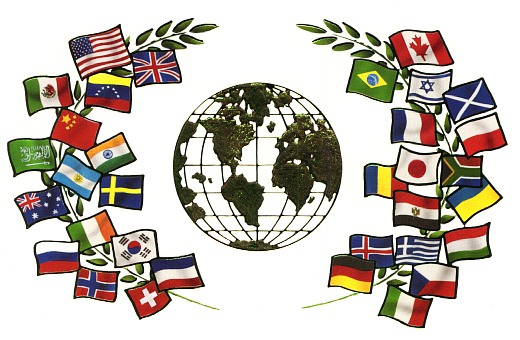
Currently less than 26% of American adults speak another language, in comparison to over 54% of Europeans who are able to hold a conversation in another language. What does this increasing gap of ability to communicate exactly mean?
- According David Gray, former Secretary of Labor, it significantly reduces American competitiveness in global markets, as they cannot fully communicate without an aid. He explains, "To make a sale, you have a great disadvantage if your competitor speaks the language of the customer and you don’t.”
- According to ACTFL (American Council of Teachers for foreign Languages), our national security is further weakened, as there is an ever diminishing number of translators working within the FBI as well as diminishes diplomatic efforts with a lack of cultural awareness.
Despite these real implications, only 25% of elementary schools in the entire US offer foreign language programs. In addition, the only bill that specifically supported foreign languages was eliminated in 2012.
So why is there a continuous lack of attention to foreign languages?
1. Americans don't see the need for foreign languages.
To put it in perspective, a Gallup poll survey was conducted in 2001, asking the question, "How important is it that Americans learn to speak a second language other than English?"
Essential | Important |
Not too important
|
Not at all important
|
No
opinion | |
2001 Mar 26-28
|
19%
|
50
|
18
|
12
|
1
|
2. This leads me to the second reason as to why Americans don't find the need to learn foreign languages, our geography and our history.
Head of the American Council on Teaching of Foreign Languages, Marty Abbott puts it best, "We have never had a compelling reason to interact with the rest of the world. We have been isolated geographically, and haven’t had that urgency [to learn other languages] that Europeans have had.”
Because English has become a global language, and we ourselves have never had to compete with our surroundings (as our surroundings are bodies of water), we use English as a badge of national expression and identity. As a result, according to Shuhan Wang of the National Foreign Language Center, "it becomes a two-edged sword. People understand us, but we don’t comprehend them. We are losing so much and are not aware of it.”
The world has changed and we can no longer be satisfied with bypassing cultural lessons and foreign language classes simply because we know English. The world is quickly adapting, when will we?
For a little Culture "Shock" check out some of these popular German, French, and Korean songs!
While I agree that foreign language education is important, I find it so for a slightly different reason. Because truth be told, you really can get by in the world just speaking English. The major sites of business, engineering, innovation, and diplomacy across the world are ones in which English is commonly spoken. Do we really need to know how to speak another language for communication reasons?
ReplyDeleteBut I think we should learn a second language for a different reason: so that we understand other cultures. Cultural understanding IS vital to global competitiveness and ability. Learning a language, mildly important. In the process, learning a culture, very important.
I definitely find language an important aspect of education. I feel that Americans often don't see a need for learning other languages because they assume American exceptionalism and that English is spoken everywhere. Well the fact is, English is not spoken by everyone. When I visited Spain last year, I met many people who I could not easily communicate with because of my lack of Spanish and their minimal English. This applies to most countries. There are always people who don't speak English and it isn't fair to assume that they should. By learning a foreign language, you not only gain the ability to communicate to those people, but you also learn about that culture. This can just be an added bonus to your spectrum of cultural literacy, or it can actually one day help you when communicating with other people or perhaps working with the people in that nation.
ReplyDelete